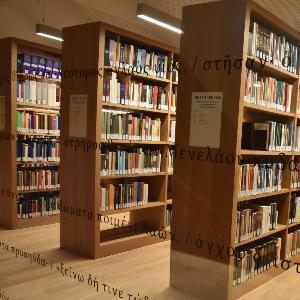Teaching
The lecturers of the Teaching and Research Unit for Physical Geography and Earth System Interactions offer courses in various degree programs.

The lecturers of the Teaching and Research Unit for Physical Geography and Earth System Interactions offer courses in various degree programs.

Übung Berufsvorbereitung
Arbeit mit Daten aus aktuellen Forschungsprojekten (Global Carbon Project, CDRterra, Horizon Europe Projekte) ist möglich, wenn gute Programmierkenntnisse (z.B. python oder R) vorhanden sind.
Bitte bringen Sie konkrete eigene Themenvorschläge mit in die Besprechung!
Themen im Zusammenhang mit Land-Atmosphäre-Kopplung, Wetteranalyse und Vorhersage:
Eigene Themenvorschläge sind willkommen!
Arbeit mit Daten aus aktuellen Forschungsprojekten (Global Carbon Project, CDRterra, Horizon Europe Projekte) ist möglich, wenn gute Programmierkenntnisse (z.B. python oder R) vorhanden sind.
Bitte kontaktieren Sie J. Pongratz für aktuelle Themen!
Weitere Themen gerne auch nach Absprache!
The teaching focus of the teaching and research unit (LFE) Physical Geography and Earth System Interactions covers the entire content of physical geography (geomorphology & geology, soil science & soil geography, hydrology, climatology, vegetation geography/landscape ecology). These form the basis for further key topics in applied geography (e.g. ecozonetics, high mountain geography, land use, management of georisks, climate change impact research).
The regional geography course covers selected key areas in Bavaria, Germany and Europe. Different sub-regions and ecozones outside Europe are also presented (e.g. African drylands, high mountains of the earth, tropical Africa). The teaching of geographical methods (e.g. field and laboratory methods, excursions, field exercises) is also of great importance. The methodological courses also cover the areas of geographic information systems (GIS) and environmental and climate modeling.
The results of current research at the chair are incorporated into numerous courses. For example, the Soil & Water Assessment Tool model SWAT or the renowned climate model MPI-ESM are used in the content of numerous courses. In selected seminars, a UN Climate Change Conference (COP) is also simulated in role plays to sensitize participants to the various concerns and perspectives and to train them in a research-based discussion culture.
Theses (Bachelor's and Master's, but also state examinations) that have been successfully completed in the last few years in this LFE are closely related to the research of the chair. Some examples of current and planned theses are
The didactic training of student teachers of all school types and subject or subject group combinations with geography as a school subject at this teaching unit should be emphasized. The complete training includes, for example, the theoretical foundations of subject didactics as well as a broad spectrum of teaching methods based on the latest findings of subject didactic research. The practical training includes the supervision of school internships in close cooperation with the host schools in accordance with the chosen degree courses. In addition, students also have the opportunity to practise the theoretical content in seminars, e.g. in teaching experiments. The exchange with schools also provides the opportunity for knowledge transfer between schools and current science.
A very successful project of the Department of Geography Didactics at LMU is the so-called climate class, which focuses on practice-oriented climate education. Student teachers learn how to deal with climate change in the classroom. Teachers receive impulses and materials to promote climate-conscious action. Pupils are introduced to a reflective approach to the topic in projects using action-oriented methods. The focus is on close cooperation between science and practice.
The courses can be found by students in the LMU systems Lehre-Studium-Forschung (LSF) and MOODLE.